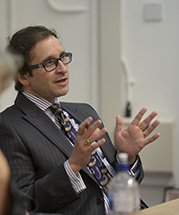
Welcome
We’re almost there!
The programme is looking amazing. Thank you all for your contributions. Posters, abstracts, blogs and biographies show an incredibly active and diverse group of presenters, keynote speakers, panel members, workshop organisers and delegates – all working to improve health and care.
You look very much like boundary-crossers. We think this is exciting and raises important questions. Can we influence events outside and across traditional groupings? Is it valuable to share what is effective health and care work – even when uniquely situated and contingent on relationships? Are power imbalances, factionalism and politics amenable to scrutiny and challenge, through our everyday relationships, decisions and actions?
Just a few things to start thinking about – there will be more! – as you plan your personal itinerary for the day. We welcome your ideas for the future as we think about what the conference day needs to lead to for the good of our patients, students and workforce. Have safe journeys. We look forward to meeting you all on Wednesday.
Julie Wintrup
Conference Convenor
Centre for Innovation and Leadership in Health Sciences
Exploring the ethics of everyday practice
The University is absolutely delighted to welcome participants and attendees to the 2015 Challenging Questions and Ethical Obligations conference. This event clearly signals the success, and the benefits, of University of Southampton’s tradition of and commitment to interdisciplinary learning and research. The complementary approaches to enquiry and investigation across the intellectual fields that this conference represents act to spur a deeper kind of understanding. The conference brings together a team from Health Sciences, Law, Medicine, Psychology, and Philosophy to tackle the challenges of ethics in everyday practice — an interdisciplinary approach that turns the lens around from looking at abstract principles to looking at what people do and how they understand ethics in health practice. It is a fascinating and innovative approach and the University is proud to have made this conference possible. Special thanks are due to Julie Wintrup, Anya de Iongh, Hazel Biggs, Tracey Davies, Roger Ingham and Angela Fenwick for an important part of the academic motivation for this conference and for the consummate planning that made the conference a reality.
Dr Russell Bentley
Assistant Pro Vice-Chancellor (Education)
University of Southampton

 RT
RT